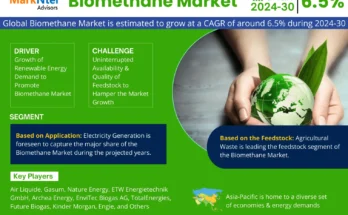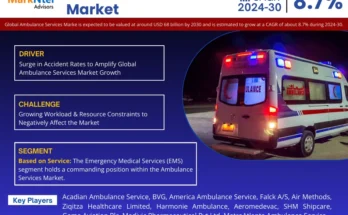Overview and Scope
Low-calorie foods include food products that have relatively few calories per serving. These products are low in calories and thus very helpful in fat loss. Low-calorie food refers to meal substitutes that meet the required daily needs for minerals, vitamins, protein, and other energy needs.
Sizing and Forecast
The low-calorie food market size has grown strongly in recent years. It will grow from $13.65 billion in 2023 to $14.69 billion in 2024 at a compound annual growth rate (CAGR) of 7.6%. The growth in the historic period can be attributed to evolving food preferences, environmental and sustainability concerns, increased environmental and sustainability concerns, accessibility and availability, celebrity endorsements and influencers..
The low-calorie food market size is expected to see strong growth in the next few years. It will grow to $20.23 billion in 2028 at a compound annual growth rate (CAGR) of 8.3%. The growth in the forecast period can be attributed to cultural and demographic shifts, sustainability concerns, demand for convenient healthy foods, stringent nutritional labeling, prevalence of diet-related diseases.. Major trends in the forecast period include health and wellness movement, productinnovation, plant-based and vegan diets, technological innovation, functional foods..
To access more details regarding this report, visit the link:
https://www.thebusinessresearchcompany.com/report/low-calorie-food-global-market-report
Segmentation & Regional Insights
The low-calorie food market covered in this report is segmented –
1) By Type: Sugar Substitutes, Sugar Alcohol Substitutes, Nutrient Based Substitutes
2) By Product: Aspartame, Sucralose, Stevia, Saccharin, Cyclamate
3) By Application: Dairy Products, Dietary Beverages, Bakery Products, Snacks, Other Applications
North America was the largest region in the low-calorie food market in 2023. Asia-Pacific is expected to be the fastest-growing region in the forecast period. The regions covered in the low-calorie food market report are Asia-Pacific, Western Europe, Eastern Europe, North America, South America, Middle East, Africa.
Intrigued to explore the contents? Secure your hands-on sample copy of the report:
https://www.thebusinessresearchcompany.com/sample.aspx?id=8160&type=smp
Major Driver Impacting Market Growth
The increasing prevalence of obesity and diabetes around the globe is expected to drive the low-calorie food market going forward. Obesity is a disease that primarily involves a relatively higher body fat percentage. Diabetes is a disease caused by very high blood glucose levels. Obesity and diabetes are interrelated and occur together. A low-calorie diet can be very beneficial in obesity and diabetes treatment as it makes the fat-burning process faster and puts the body in a catabolic state. For instance, according to the International Diabetes Federation, an umbrella organization of more than 230 national diabetes associations from over 160 countries, in 2021, approximately 537 million adults (20-79 years) were living with diabetes. The number of patients is expected to rise to 643 million by 2030 and 783 million by 2045. Furthermore, according to the World Obesity Federation, a federation of scientific, medical, and research professionals from over 50 regional and national obesity associations, 1 billion people globally, including 1 out of 5 women and 1 out of 7 men, will be living with obesity in 2030. Therefore, the increasing prevalence of diabetes and obesity is driving the low-calorie food market.
Key Industry Players
Major companies operating in the low-calorie food market report are Ajinomoto Co. Inc., Beneo Group, Ingredion Incorporated, Abbott Laboratories, Galam Ltd., PepsiCo Inc., Zydus Wellness Limited, Bernard Food Industries Inc., Danisco A/S, Archer Daniels Midland Company, The Coca-Cola Company, Cargill Incorporated, Groupe Danone SA, Nestlé S.A., McNeil Nutritionals LLC, Dr Pepper Snapple Group Inc., Heartland Food Products Group, Glucerna SR tablets, Kellogg Company, General Mills Inc., The Hershey Company, Mars Incorporated, Mondelez International Inc., Unilever plc, Kraft Heinz Company, Campbell Soup Company, Conagra Brands Inc., The J.M. Smucker Company, Hormel Foods Corporation, Tyson Foods Inc., Maple Leaf Foods Inc., Beyond Meat Inc., Impossible Foods Inc., Amy’s Kitchen Inc., Sweetgreen Inc., Freshii Inc., Just Salad LLC, Chopt Creative Salad Company LLC, Tender Greens, Cava Group Inc., Dig Inn Hospitality Group LLC, Lemonade Restaurant Group LLC
The low-calorie food market report table of contents includes:
1. Executive Summary
2. Low-calorie Food Market Characteristics
3. Low-calorie Food Market Trends And Strategies
4. Low-calorie Food Market – Macro Economic Scenario
5. Global Low-calorie Food Market Size and Growth
.
.
.
31. Global Low-calorie Food Market Competitive Benchmarking
32. Global Low-calorie Food Market Competitive Dashboard
33. Key Mergers And Acquisitions In The Low-calorie Food Market
34. Low-calorie Food Market Future Outlook and Potential Analysis
35. Appendix
Explore the trending research reports from TBRC:
Contact Us:
The Business Research Company
Europe: +44 207 1930 708
Asia: +91 88972 63534
Americas: +1 315 623 0293
Email: info@tbrc.info
Follow Us On:
LinkedIn: https://in.linkedin.com/company/the-business-research-company
Twitter: https://twitter.com/tbrc_info
Facebook: https://www.facebook.com/TheBusinessResearchCompany
YouTube: https://www.youtube.com/channel/UC24_fI0rV8cR5DxlCpgmyFQ
Blog: https://blog.tbrc.info/
Healthcare Blog: https://healthcareresearchreports.com/
Global Market Model: https://www.thebusinessresearchcompany.com/global-market-model




